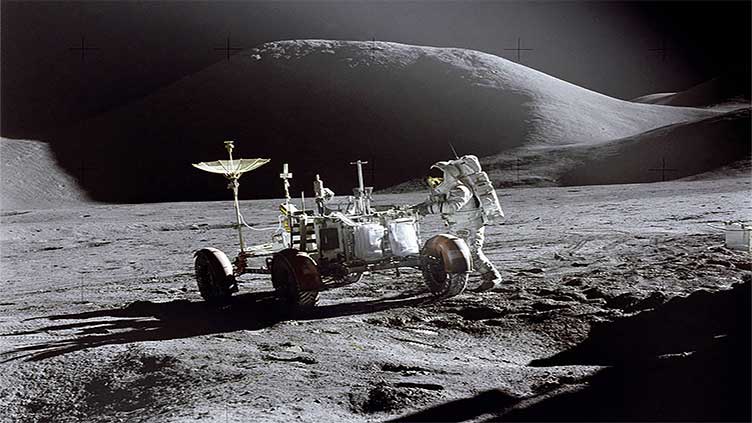Why the next moon landing may be the most important since Apollo 11

Technology
It is a private company that will be landing on the moon, not Nasa
(Web Desk) - Decades after the last American landed on the moon, the United States is set to make a return to our nearest neighbor on Jan. 8 — but this time, it’s a private company’s spacecraft that will be bound for the lunar surface.
If it makes it to the moon, that craft, known as the Peregrine lander, will be the first commercial spacecraft to land on the moon and make its parent company, Astrobotic, the fifth entity to ever do so (the other four are the space agencies of the U.S., China, the USSR and India).
Weather permitting, a United Launch Alliance rocket called the Vulcan will blast off from Florida’s Cape Canaveral in the early hours of Jan. 8.
Aboard will be the Peregrine, the first American lunar lander since the Apollo missions and the first to be made not by an official governmental agency, but by a commercial company.
It’ll be a slow ride to the moon: while the Apollo missions generally clocked 10 days for a round trip, the Peregrine will take several weeks to reach the moon.
Once there, it will spend over three days in orbit before attempting to land on Feb. 23.
If it does, it will be a momentous moment for Astrobotic, the Pittsburgh-based company that built the vehicle, and a new era for space exploration as a whole.
“It's the beginning of regular access to the lunar surface,” Astrobotic’s director of communications Alivia Chapla told The Messenger.
“It is the first step in continuing on to create more and more missions sustainably and really, the base for longevity of returning humans to the lunar surface.”
That future is already set to involve corporations as much as world governments.
During a press briefing on the Peregrine mission held Thursday, NASA officials laid out a vision in which public goals are achieved via private companies, developing everything from landers to launch services — a system they said will allow for more missions to be accomplished at a lower cost.
Nasa already has such partnerships in place. Since the demise of the space shuttle, Nasa has relied on private companies, most notably Elon Musk’s SpaceX, to launch vital missions to space, including crews of astronauts.
Christopher Impey, an astronomer at the University of Arizona, said the influx of corporations into the space industry, including Peregrine, has by and large been a positive development that has produced technological innovations.
But he noted that the industry is working in a “wild west” as international law has not kept pace with their growing involvement in space exploration.
“It's a bit of a lawless landscape,” he said. “And, you know, we haven't seen bad consequences yet, because it's in its infancy and see these are just the first baby steps.
What's it going to be like when people want to mine the moon and set up big encampments there? Are they going to follow labor law? Are they going to use slave labor?”
Nasa also has its own missions to the moon on the schedule for the next few years, including returning astronauts to the surface in 2025.
But together, these are all baby steps toward realizing an ultimate goal of long-term, staffed lunar bases.


